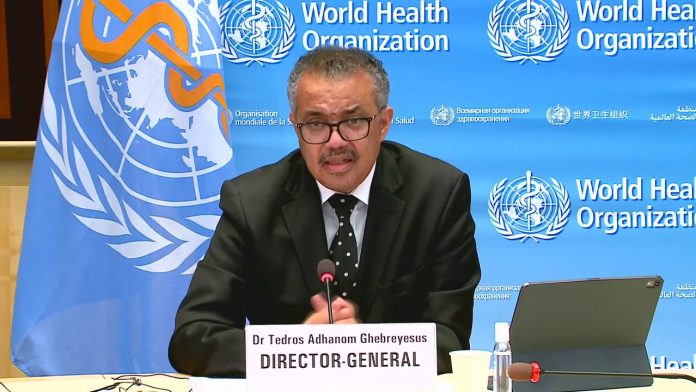As the World Health Organization (WHO) prepares to mark its 75th anniversary on April 7, the Director-General, Dr Tedros Adhanom Ghebreyesus, has called for renewed global action to ensure health equity in the face of unprecedented threats.
The WHO’s Constitution came into force 75 years ago in the aftermath of the deadliest war in human history. Since then, there has been remarkable progress in protecting people from diseases and destruction. However, vast inequities in access to health services, major gaps in the world’s defences against health emergencies, and threats from health-harming products and the climate crisis continue to persist.
“To meet these global challenges, we can only do so with global cooperation,” Dr Tedros said. The WHO is calling on countries to prioritize investments in education, skills, and decent jobs for health to protect, support, and expand the health workforce as a strategic priority. By 2030, there is expected to be a shortage of 10 million health workers, mainly in low- and middle-income countries.
Recently, the WHO announced a global education programme on basic emergency care targeting 25% of nurses and midwives from 25 low- and middle-income countries by the end of 2025. The 25x25x25 emergency care programme aims to equip nurses and midwives with the skills and competencies to make a significant difference in saving lives and reducing disabilities.
Looking to the future, the WHO is urging countries to commit to health equity to address future health challenges. In the wake of the COVID-19 pandemic, the WHO’s roadmap to recovery includes promoting health and well-being and preventing disease by addressing its root causes and creating the conditions for health to thrive. The WHO is also urging countries to prioritize primary health care as the foundation of universal health coverage.
The COVID-19 pandemic has demonstrated that protecting health is fundamental to our economies, societies, security, and stability. To prepare the world for future pandemics, the WHO is supporting countries as they negotiate a pandemic accord, revise the International Health Regulations, and implement financial, governance, and operational initiatives.
Over the past five years, the WHO has invested in science and digital health, creating a Science Division led by the Organization’s first Chief Scientist. Countries must protect the public from misinformation and disinformation as the future of health depends on powering health through science, research, innovation, data, digital technologies, and partnerships.
As the WHO marks its 75th anniversary, Dr Tedros urged countries and leaders to take action to protect and invest in health and care workers who are at the forefront of the response to health and climate emergencies. “We have much work to do to realize our founding vision of the highest attainable standard of health for all people,” he said. “But together, we can achieve this goal.”







